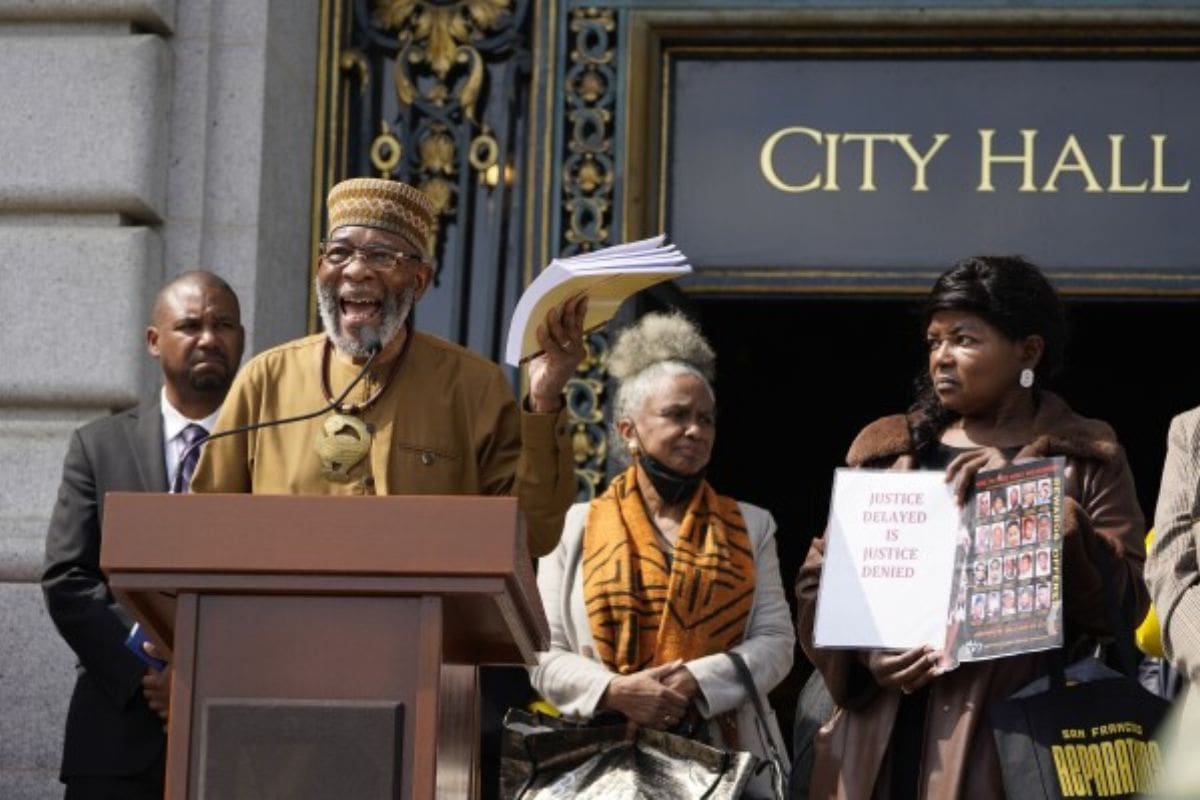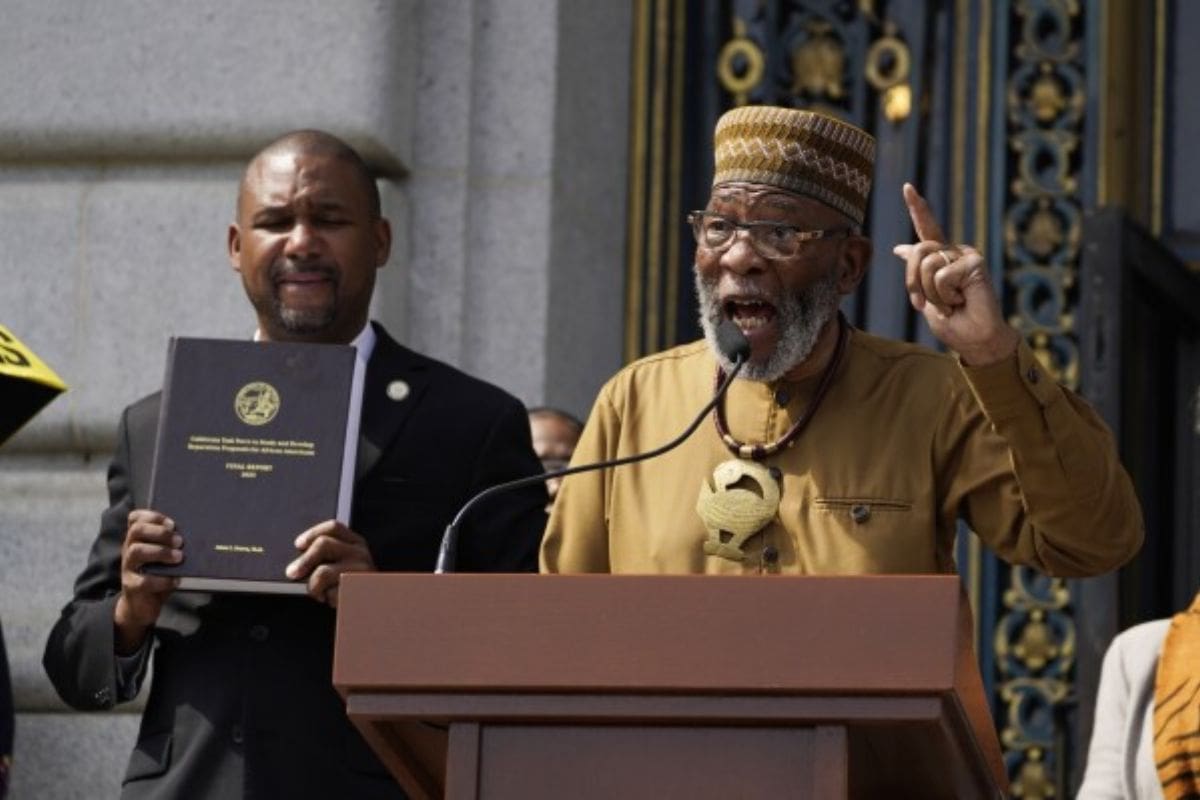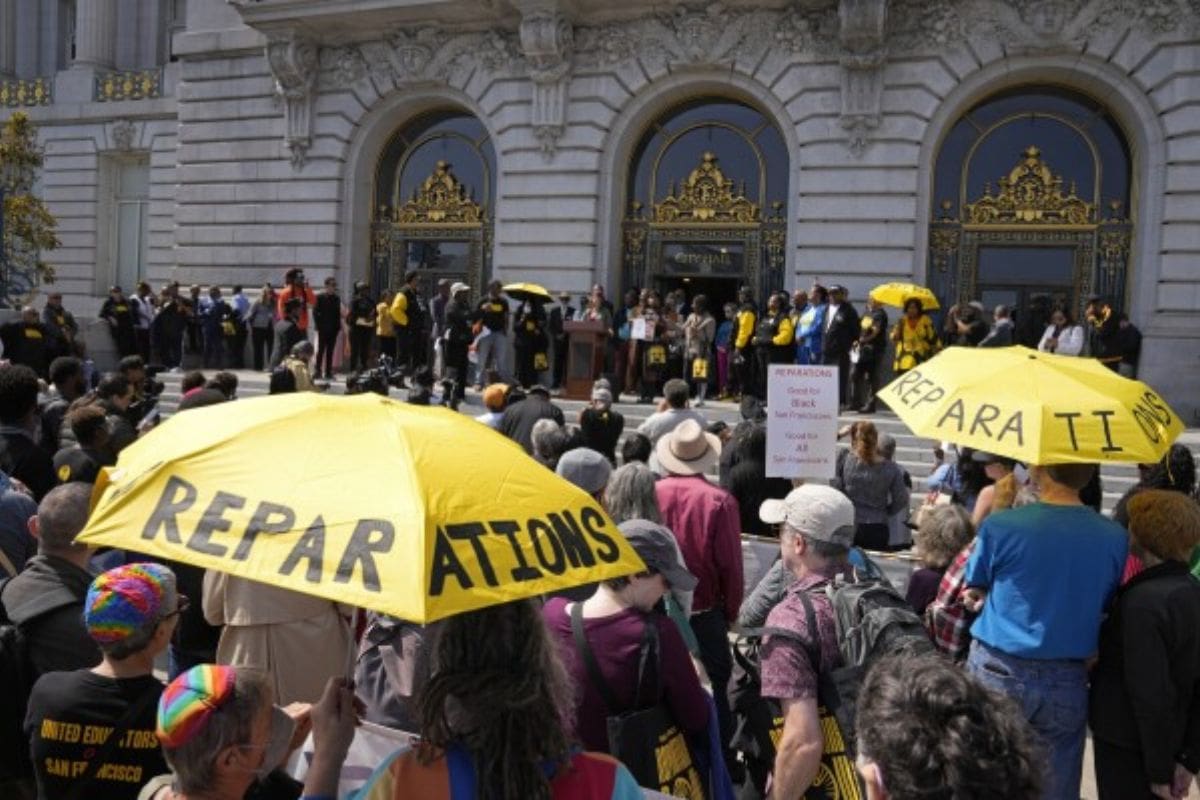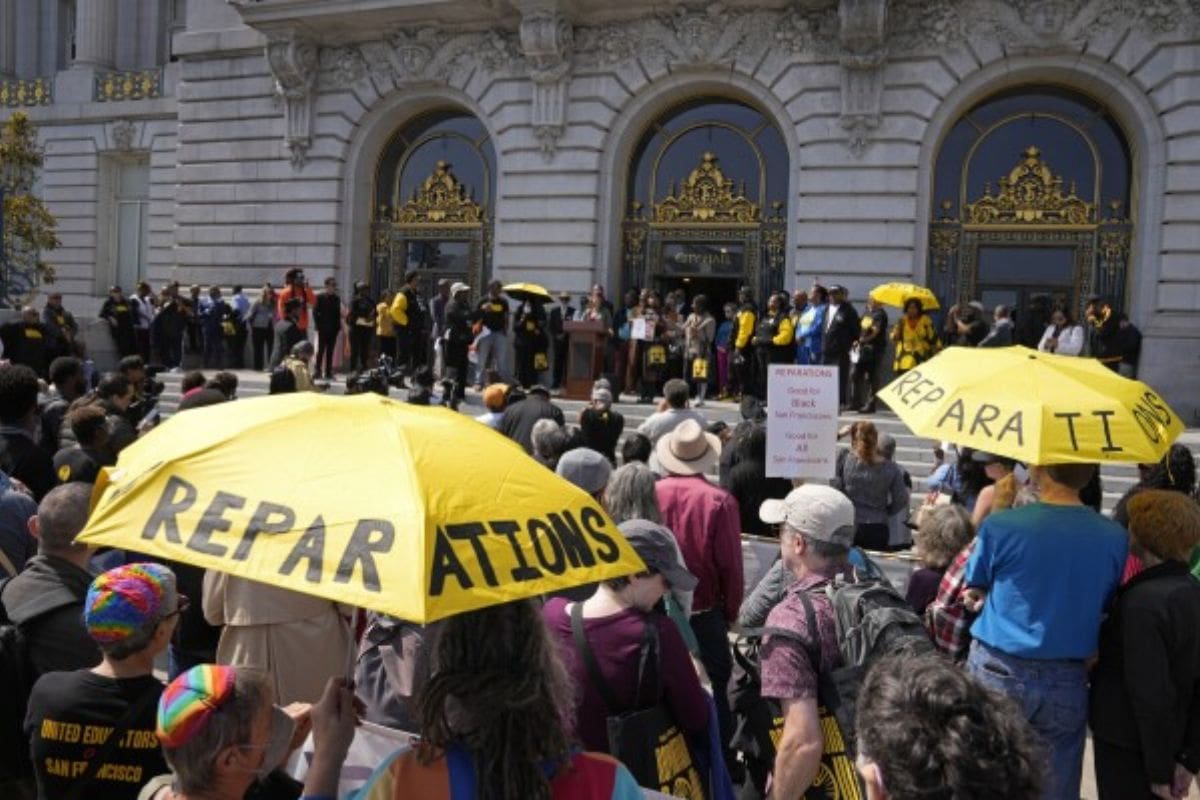San Francisco Apologizes to Blacks: The recent apology issued by San Francisco supervisors to the Black community for past racist laws and policies has sparked heated debates among reparations advocates. While the gesture is seen as a step in the right direction, many are calling for more concrete actions to address historical injustices.
The demand for reparations is not a new concept, but the slow government response raises questions about the effectiveness of national versus local approaches in achieving justice. As discussions intensify, the challenges ahead and the pressing need for substantial changes become increasingly evident.

San Francisco Supervisors Apologize for Racist Laws and Policies
In a significant move towards acknowledging its history of systemic racism, the San Francisco Board of Supervisors is poised to issue a formal apology for the city’s past implementation of racist laws and policies. This gesture signifies a crucial step in recognizing the injustices faced by Black residents due to discriminatory practices that have perpetuated racial disparities within the city. The resolution, up for a vote, marks a pivotal moment in addressing the harm caused by historical racism and sets the stage for future actions aimed at rectifying these wrongs.
The planned apology underscores the city’s commitment to dismantling systemic racism and signifies a willingness to confront the uncomfortable truths of its past. By acknowledging the pain and suffering inflicted upon Black communities, San Francisco is taking a crucial first step towards reconciliation and healing. However, while an apology is a necessary starting point, critics rightfully argue that more concrete measures, such as reparations and targeted investments, are essential to address the enduring racial inequalities and disparities that persist today.
Reparations Advocacy and Slow Government Response
Advocates for reparations in San Francisco are met with frustration as the government’s response to proposals remains stagnant amidst budget constraints and lack of action. This includes a $5 million lump-sum payment and guaranteed income for eligible Black adults. Supervisor Shamann Walton, a key figure in the push for reparations, views the recent apology as a step towards acknowledging past wrongs. However, this acknowledgment falls short of the concrete actions needed to address historical injustices.
The African American Reparations Advisory Committee has put forward a comprehensive set of recommendations, yet these proposals seem to have been left on the sidelines. The lack of progress on implementing reparations measures has sparked discontent among advocates who see tangible reparative actions as long overdue.
Mayor London Breed’s decision to cut funding for a proposed reparations office under the guise of budget constraints adds to the growing disillusionment within the community. While fiscal concerns are valid, they cannot serve as a perpetual barrier to rectifying systemic inequities. The slow pace of the government’s response to reparations calls raises questions about its commitment to addressing racial injustices in a meaningful and timely manner.

National vs. Local Approach to Reparations
Considering the complex landscape of historical injustices and systemic disparities, the debate between a national versus local approach to reparations emerges as a critical juncture in the ongoing quest for racial equity.
Key Points:
- Historical Context: The history of slavery and systemic racism in the United States transcends local boundaries, indicating a need for a comprehensive, nationwide response to repair the damages inflicted on Black communities.
- Uniform Standards: A national approach could ensure consistency and fairness in the distribution of reparations, preventing disparities that might arise from varying local policies and resources.
- Political Will: While local initiatives can be more agile and responsive to community needs, a national strategy backed by federal legislation may carry more weight and resources to effect meaningful change.
- Symbolism vs. Substance: Local efforts, while important for acknowledgment and community healing, must be complemented by a national framework to provide substantial financial redress and address systemic inequities on a broader scale.
In light of these considerations, the balance between a national and local approach to reparations remains a pivotal issue demanding careful deliberation and decisive action.
Challenges and Need for Concrete Actions
Addressing the persistent challenges faced by Black residents in San Francisco demands concrete and immediate actions to rectify systemic disparities. Despite the recent apology from the city, critics like Reverend Amos C. Brown argue that symbolic gestures fall short of addressing the deep-rooted issues affecting the Black community.
High rates of homelessness among Black residents underscore the ongoing inequalities that persist. Advocates emphasize the urgent need for reparations that encompass crucial areas such as healthcare, education, and economic opportunities.
The slow progress in implementing substantial changes raises concerns about the genuine commitment to tackling historical injustices and advancing racial equity in San Francisco. To truly make a meaningful impact, proactive measures must be taken to address the systemic barriers that have long hindered the progress of the Black population in the city.
Only through concrete actions and a steadfast dedication to reform can San Francisco begin to address the disparities and injustices that continue to impact its Black residents.

Also Read: California Representative Swalwell Faces Scrutiny Over Lavish Super Bowl Campaign Spending
News In Brief
San Francisco’s apology to the Black community for past racist laws triggers demands for more action, including reparations. While seen as a step forward, critics argue the need for concrete measures to address historical injustices. Advocates push for a local approach, proposing a $5 million lump-sum payment and guaranteed income for eligible Black adults. However, slow government response and budget cuts fuel frustration among reparations proponents. The debate intensifies over the effectiveness of national versus local strategies in achieving racial equity. Despite symbolic gestures, tangible actions are deemed necessary to rectify systemic disparities and uplift the Black community.

